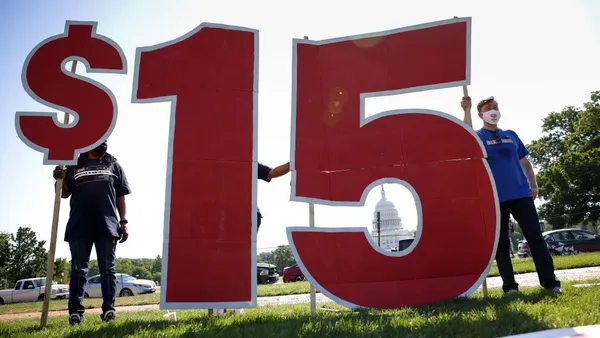Dive Brief:
- The Equal Employment Opportunity Commission will strongly challenge employers for firing workers that refuse flu shots on religious grounds, says SHRM. Hospitals, nursing homes and healthcare facilities often require workers to get flu shots. Several states also require flu shots for workers in healthcare, says SHRM.
- In September, the EEOC sued St. Vincent Health Center in Erie, PA, for firing six employees of various faiths for refusing flu shots. Under Title VII of the 1964 Civil Rights Act, a company must accommodate a person’s sincerely held religious belief if it conflicts with workplace rules and doesn’t present a hardship. The agency argues that if workers aren’t in direct contact with patients, there’s no undue hardship if they refuse a flu shot based on their religious beliefs. So far, the EEOC has no similar position on other types of vaccinations.
- Another case involved Stephanie Clarke, an HR recruiter at Baystate Medical Center in Springfield, MA. The hospital accommodated her religious belief by giving her a mask to wear, a common practice in healthcare. She wore it but claimed that people couldn’t hear her when she spoke, so she removed it. Baystate suspended and later fired her. The EEOC sued on her behalf.
Dive Insight:
The law says a person must have a “sincerely” held belief to be accommodated. Therefore, employers must be prepared to evaluate individual requests for accommodation. A court rejected an employee’s claim when a 22-page essay he submitted as proof failed to convince the court that he held a sincere belief.
Employees who refuse flu shots on secular grounds have no protections under current law. This narrows the possibility of healthcare employers getting sued when secular reasons for refusing a flu vaccine conflict with company policy.









